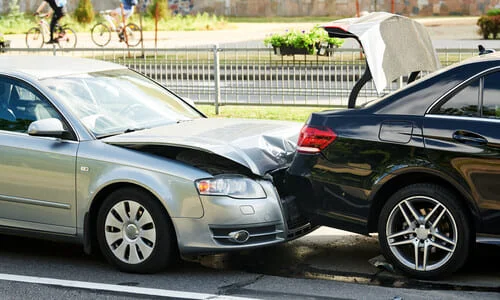
Reaching a settlement for a car accident claim can be tricky. The ideal result of submitting a claim against a negligent party is that they pay whatever you ask them to.
But the reality is that this is rarely the case. Oftentimes, the response received by an insurer is usually significantly lower than what was expected — and in some cases, nothing is offered at all.
Both parties will try to do what is necessary not to go to court. The goal when filing a typical claim is to settle as soon as possible and close the case.
However, the outcome of a settlement will depend on what was negotiated and the case’s unique complexities.
Negotiating and understanding the ins and outs of a car accident claim can take time, energy, and understanding of the scope of the claim. Fortunately, it is not something you need to do alone.
Call Singh Ahluwalia Attorneys at Law at (559) 878-4958 or complete our form online today to schedule a free, confidential case review. Understanding how settlements work is made easy with the guidance of an experienced car accident lawyer in Fresno or throughout California by your side.
How Long Does the Car Accident Settlement Process Take?
Each car accident case carries unique sets of complexities, injuries, and relevant evidence that impact the time to reach an agreement. Claimants can expect to reach a settlement anywhere between 9-18 months, with receipt of the settled amount within 30 days of signing a release.
Simple cases with minor injuries and damages can be resolved within a few weeks, but more complicated cases with severe injuries, property damage, or fatalities can take significantly longer to resolve.
Reporting on a Case’s Progress
Knowing the status of your case throughout the timeline of your claim is essential because of the multiple parties involved in addressing your injuries.
Personal injury lawyers usually will not be the only ones to make calls to their clients directly. Often, they hire paralegals, associate counsel, and secretaries who are qualified to speak about the status of your case.
Claimants who wish to only speak to their attorney should be clear and upfront about it during their consultation. If claimants receive calls from the other party’s insurer, they should call their attorney as soon as possible to let them know what was discussed.
Ideally, though, they will direct all communications to their attorney in order to avoid the risk of saying something that could hurt their ability to file compensation.
Steps to File a Car Insurance Claim
The first step to filing a claim begins at the scene of the car accident. This due diligence includes seeking medical care and attention as soon as possible, taking photos of the damage done to your vehicle, taking names of witnesses, and receiving a copy of the police report.
These items will all be reviewed and submitted as evidence with the remainder of your insurance claim.
Here is a step-by-step breakdown of what you should do:
- Search for any visible injuries to you or any others involved in the accident.
- Call 911 and report a car accident. If there are injuries, request an ambulance.
- When the police arrive, they will assess the accident and assign fault. Do not admit fault for the accident.
- Take photos and video, names of possible witnesses, and document what you can.
- Call Singh Ahluwalia Attorneys at Law for a case review. During the consultation, your case will be discussed, including your legal options available.
- File a claim to the other party’s insurer (or your insurer if partially at fault).
Those filing a claim must ensure they have collected the appropriate contact information from the other party, including insurance information and a copy of the police report.
Having a copy of the official police report is one of the best justice advocates, along with an attorney’s support and defense, to receive compensation for a claim.
Contacting Insurance Companies
There are different types of insurance claims that can be filed in association with a car accident. Any claims made to your insurance would be considered a first-party claim, and any claims made to the other party’s insurer are referred to as third-party insurance claims.
Depending on who was at fault or by what percentage, it will determine which insurance company is responsible for paying for a claim and by how much.
California is an at-fault state, meaning that fault must be established in order for an injury claim against another driver to proceed. The police report will detail the crash in how it happened and indicate possible fault.
Depending on their insurer, you may file a claim online through their website or call directly. Insurance companies must then review and respond to the compensation amount claimed for any property damage and injuries.
Most commonly, insurers take about 30 days to respond to insurance claims, to which they can accept, deny, or respond with a lesser amount than requested.
Calculating Damages for a Car Accident Claim
Your car accident attorney will be able to determine the values for your claim by:
- Calculating medical costs due to injuries related to the event of the accident.
- Calculating future medical costs and treatments because of injuries acquired during the accident.
- Calculating loss of wages because of time taken off work due to pain or medical needs.
Accept the Visit From an Adjuster
An adjuster’s responsibility is to go out and review damages to the property and provide an estimated replacement value.
When the adjuster completes their evaluation, they will create a report detailing all of their findings and estimate the value of repairing damaged items. Adjusters will submit their reports so that insurance companies can decide on the value they are willing to pay.
Those filing a claim against an insurance company should know that adjusters are not out to represent them directly. Instead, they have directives from the insurer to minimize their exposure to liability when legally possible.
However, all parties should be cooperative while they are completing their evaluation. It is expected that both parties operate in good faith throughout the negotiation process.
Receiving a Denial to a Claim
If insurance companies are known for one thing, it is for not wanting to pay. They will fight tooth and nail to refuse responsibility to pay a claim to the extent legally possible.
Receiving a denial letter is never the outcome that one hopes for. However, receiving one from the other party’s insurer — or your insurer — opens the floor for negotiations through an appeal process.
During negotiations, both parties will go back and forth until an agreement is reached. This agreement is called a settlement and will close the case.
If an agreement is not possible, a lawsuit (called a “legal complaint”) may be filed with the courts, naming all alleged at-fault parties. Unless a settlement can be reached at this point, the case will go to trial.
Then again, most insurance companies are not planning to take many cases to court. Usually, they are amendable to negotiating until a settlement is reached between both parties.
Reaching a Settlement
After negotiations, both parties aim to reach a settlement amount. When an amount is agreed to, the injured party will sign a release agreement confirming the correct amount and closing the claim.
Delays in Reaching a Settlement
Claimants should aim to work with lawyers who have successfully closed prior cases and can provide an estimate of the time needed to reach a settlement.
However, even if working with the most experienced lawyer, delays can happen, When they do, it is best to contact your attorney to see what is going on.
Typically, when there is a delay, it is due to:
- The amount of clarity as to whether the negligent party was at fault
- The percentage amount of fault estimated for each party
- The extent of the claimant’s injuries and their documented connection to the accident
- The insurance company’s cooperation and acceptance of responsibility
- The insurance company’s ability to make a fair settlement offer
Both parties are expected to be cooperative throughout the process. However, if there is a suspicion that the insurance company is not looking to resolve the case, a lawsuit can be filed in order to compel the company to honor its policy contract.
Find Legal Support in an Experienced California Car Accident Lawyer
Knowing what to do after an accident can be difficult waters to navigate, but you are not alone. Working with a legal team who is on your side from day one will ensure that you have the best fighting chance to receive compensation for your injuries and property damage.
Ready to get started? Don’t wait and call Singh Ahluwalia Attorneys at Law at (559) 878-4958 or contact us online to schedule your free, no-obligation case review.


